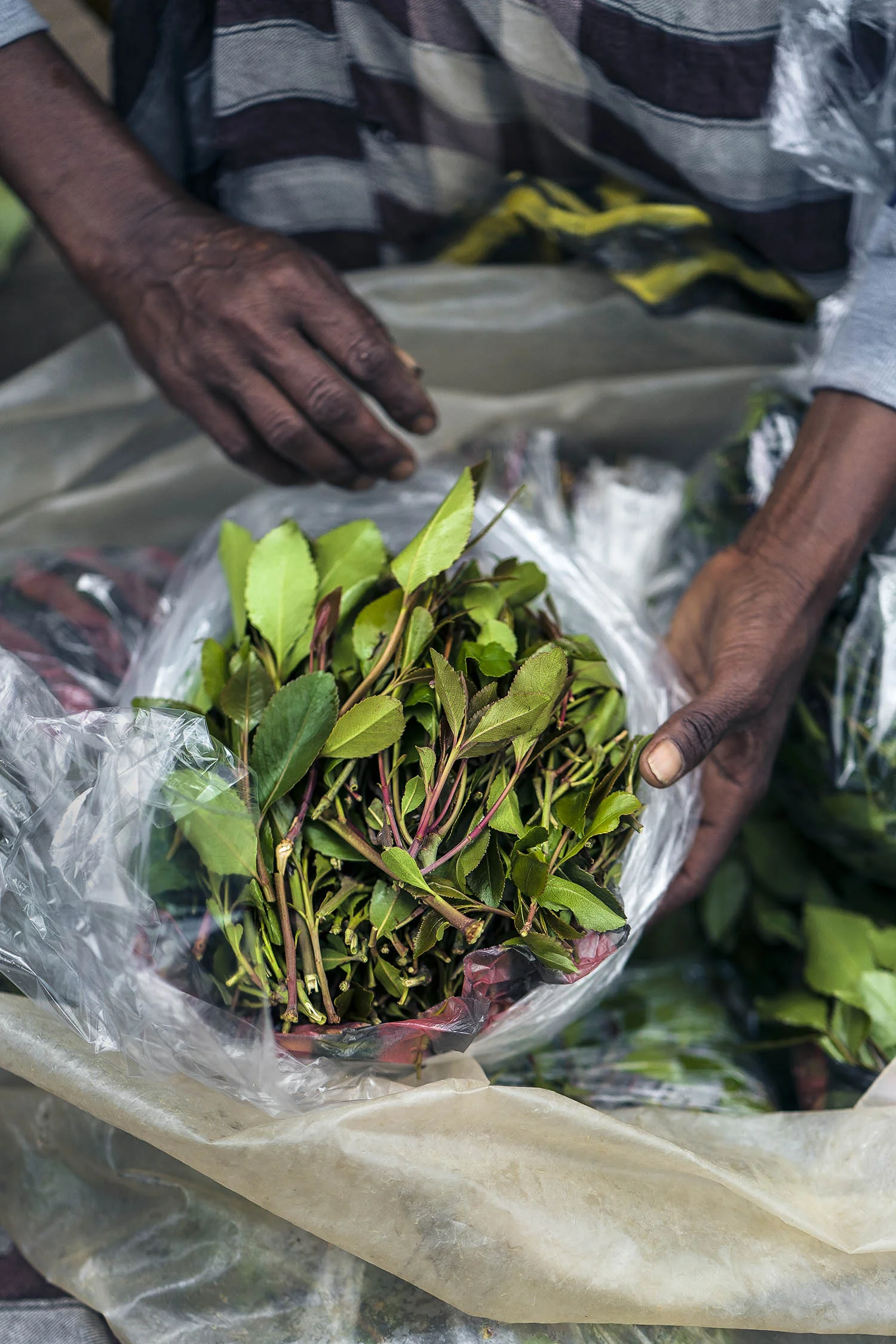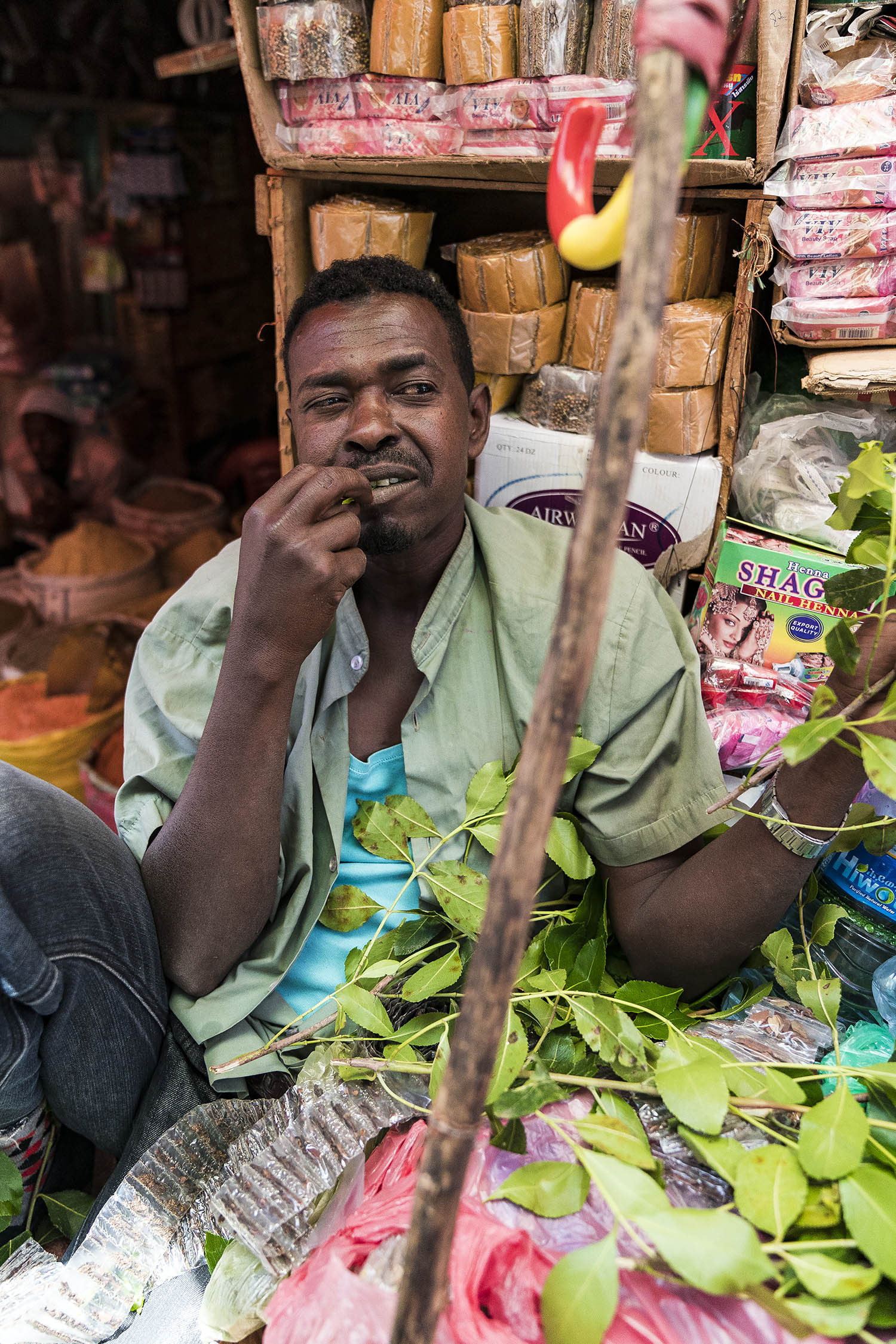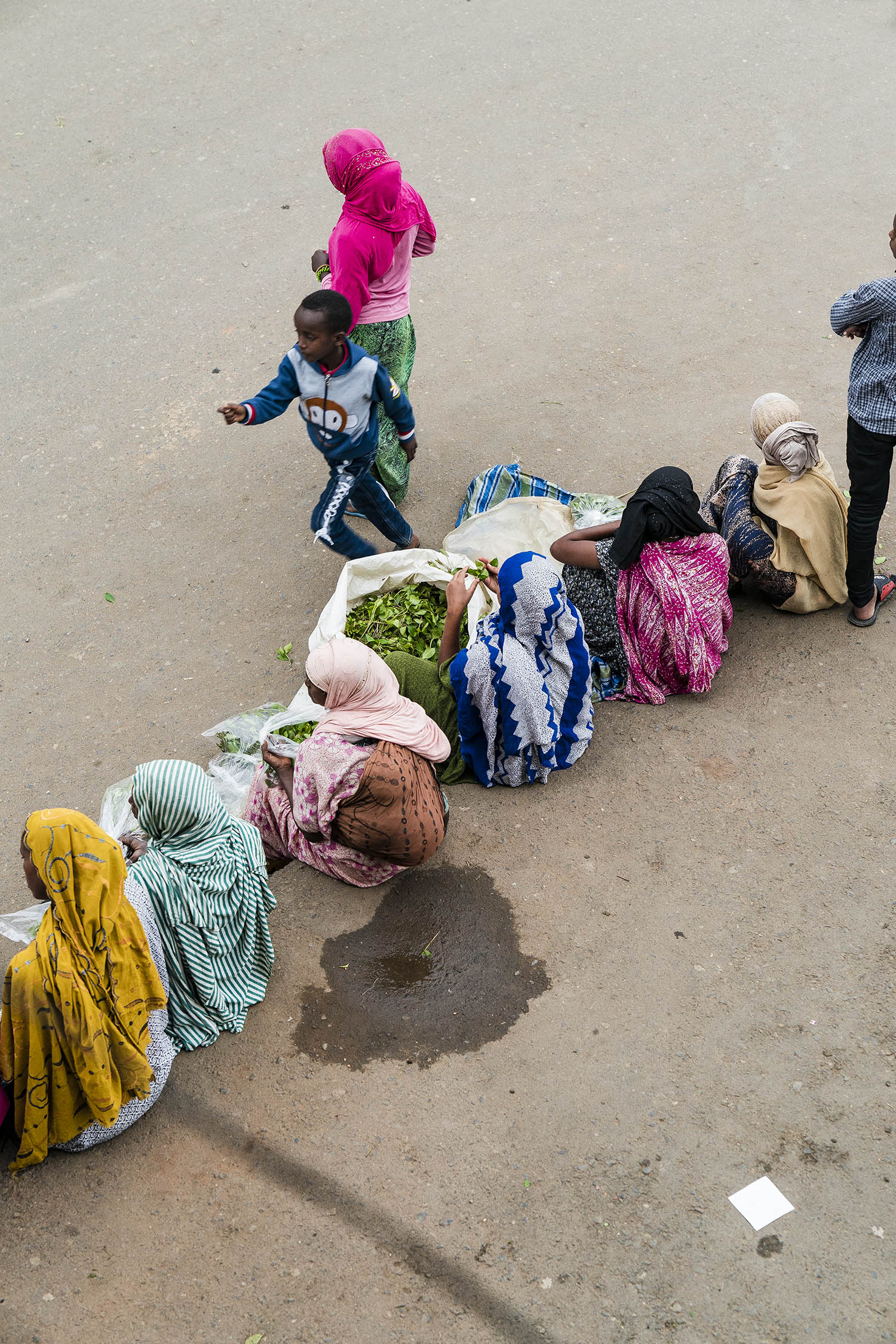THE STIMULANT LEAF THAT FUELS SOCIETY // ETHIOPIA
Alem, a twenty-something single mother from Harar, Ethiopia, is brewing us a traditional coffee on her bedroom floor. Her room looks like a typical teenage scenescape: kaleidoscopic hanging beads shield the doorway, posters of local heart throbs are taped to the walls, Ethiopian RnB pumps from a stereo, a soap opera plays on a blurry TV set. We had mentioned to our guide, Edom, that we wanted to experience a traditional coffee ceremony while we were in Ethiopia, and though I had been picturing a more spiritual, quieter setting, gathering here in Alem’s bedroom with three of her other friends—like we are teens up to no good—already feels better.
“I drink 10 coffees a day… but not always like this,” says Alem, pointing to the array of coffee-making tools clustered in front of her. Coffee is said to have originated here in Ethiopia, and the country’s ritualistic way of imbibing the drink is not just a venerated ceremony, but an important social activity, with each cup said to transform the spirit.
Among Alem’s setup is a blackened iron wok, sizzling on a charcoal stove; a small tray with five small coffee cups; another charcoal stove, this one smoking with fragrant incense rocks—a custom in Ethiopia; and a jebena, a traditional coffee pot with an elongated top.
As she sings and grooves to the music, Alem pours a jar of coffee beans into the wok. Smoke begins to stream, and she roasts the beans to oblivion, on purpose, until they are black as hell and glistening with natural oils. After a few minutes brewing in the jebena, she pours our first cups, and hands us a bundle of green waxy leaves: chats. “We always chew chats when we do the coffee ceremony,” Edom says, taking a few stalks for himself. Drinking coffee is a big deal all over Ethiopia, but in Harar, chats rule.
The psychotropic leaves are said to have amphetamine-like effects, and are the economic blood of Harar, with more than 485,000 hectares of land devoted to growing this crop. “Chats are a cash-crop, you can harvest chats 7-8 times a year. Coffee is only once per year,” says our driver, Ajeb, when we head out across the Dire Dawa Valley, 20 minutes from Harar. Here, the undulating hills are carpeted with the verdant crop; a green sea of bushes as far as the eye can see. “Harari chats are the best in Africa, Harari coffee is the best in the world.”
Back in Alem’s bedroom, already on our second cup, I give the chats a go. Edom advises to only pick the small, younger leaves; the large ones are too bitter. The chats have a chalky texture, and, to me, even the young leaves are too strong. Edom passes a plate of peanuts, suggesting I chew them at the same time to add some extra sweetness. “Sometimes we add sugar, too.” This is better, but still not delicious, but chats are not chewed for the flavour.
The leaves contain the active ingredient cathonine, structurally and chemically similar to d-amphetamine and said to give a state of euphoria and stimulation. In 1980, the World Health Organization classified the leaf as a “drug of abuse” that can produce psychological dependence. While there is concern about long-term use and the affect on mental health, scientific assessment of this is hard to find and there is much debate about its severity.
But in Harar, there is no negativity about the crop, which is Ethiopia’s second largest export and makes big bucks for the farmers. The leaf does not come cheap, my small bunch cost 200 birr (about AUD$10) yet everyone is chewing them – old, young, men, women, even the sheep graze on the discarded larger leaves and stalks that litter the streets. To see just how big business this green is for Harar, you only need to visit the Aweday Market, the largest chats market in Ethiopia. “About US$1.5 million passes through this market each day,” Ajeb says as we drive through on our way to Dire Dawa. “High quality chats, the most expensive chats, cost 1500 birr (AUD$74) per kilogram.” The chats trade is said to have helped reduce poverty throughout this region of Ethiopia.
The Aweday market is open 24 hours a day, and sells only chats. It's busy, intense and intimidating. Hundreds of sellers and buyers spill out onto the road. The scene is a blur of colourful Ethiopian dresses and stacked pyramids of the green stalks, set to a chorus of hawking and bartering. Men hoist huge bundles onto their shoulders, woman balance fabric bag-loads on their heads, and exporters buy up big to sell the leaves to countries outside of Ethiopia.
50 percent of Harar’s harvest is exported to neighbouring Somalia, where the land is too dry to grow their own crops, and some goes to Dijbouti. Some also used to be exported to London before it was made illegal to sell in 2014 because the government deemed the psychosis effects were having a negative effect on the mental health of its Ethiopian and Somalian communities. After 30 minutes of chewing chats, I’m yet to experience any stimulation that I can recognize, but I guess I'm still a rookie; Edom and Alem have been chewing chats since they were young. Leigh is more into it, and reckons he has a slight buzz. Then again, I remind him, coffee is another drug, and, thanks to Alem, we have just drunk five black cups of it.
PHOTOGRAPHY: Leigh Griffiths
WORDS: Eloise Basuki
All words and images are under copyright © 2019 strangertalk.co












